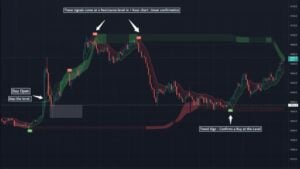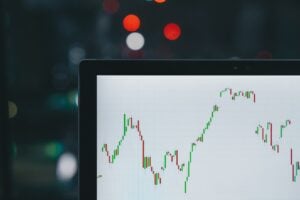How Fear of Losing Money Stops Traders from Being Successful
Recently, I (Zeiierman) had a conversation with an experienced trader who was using one of our proven trading strategies. Despite following the strategy, he still wasn’t making the profits he expected. When I asked him why, he explained that even though the market moved in his favor after he entered a trade, he got scared by the market’s ups and downs. As a result, he decided to take a small profit to avoid the risk of losing money. However, after he closed his position, the market continued to move in his favor, and he missed out on a much bigger profit.
I told him that being afraid of losing money can hold traders back. It’s common for traders to want to secure small profits to avoid losses, but this mindset can prevent them from making the bigger gains that make trading worthwhile. If you want to be successful in trading, you have to be okay with the idea that you might lose money sometimes. You’re not trading just to make small profits—you’re in the market to make significant gains, and to do that, you need to take some risks.

Why Fear Stops You from Making Money
This issue isn’t just something that happens to a few traders; it’s actually a well-known problem in the world of investing and trading. In fact, experts in behavioral finance—which studies how our emotions and psychology affect our financial decisions—have identified a common problem called loss aversion. Loss aversion means that people are naturally more afraid of losing money than they are excited about making money. This fear can lead traders to make bad decisions, like selling too early to lock in a small profit instead of waiting for a bigger one.
When traders act on this fear, they often miss out on bigger opportunities, just like the trader I spoke with. This behavior is linked to other mental traps, like recency bias, where traders focus too much on recent losses or gains, making them overly cautious or too eager to protect small profits.

How Emotions Can Mess Up Your Trading
Another common problem is that traders can become emotionally attached to their trades. This is known as the endowment effect. For example, if you’ve been holding onto a stock for a while, you might feel a stronger attachment to it, which can cloud your judgment. You might be tempted to sell it too soon just to avoid a potential loss, even when your strategy suggests holding onto it longer.
On the other hand, overconfidence can also be a significant issue for traders. Some traders might believe they can perfectly predict the market’s movements, leading them to take risks like trying to time the market without proper backing. They might think they know exactly when to enter or exit a trade, which often results in poor decisions, like trading too frequently or at the wrong times.
However, it’s crucial to remember that while overconfidence can lead to these mistakes, the solution lies in sticking strictly to your trading strategy. The strategy you’re using is designed to guide you through market fluctuations and is based on careful analysis. If you follow it faithfully, it can help you avoid the pitfalls of overconfidence.
It’s also important to note that it is possible to time the market effectively, but only if you use the right tools and strategies. Your strategy provides you with the signals and guidelines you need to make informed decisions. Trusting your strategy and having the discipline to follow its rules, even when your instincts are telling you otherwise, is key to managing overconfidence and achieving long-term success.
How to Overcome the Fear of Losing Money
If you want to overcome this fear, it’s important to focus on the bigger picture and stick to your trading strategy, even when the market gets volatile. Set clear rules for when you’ll enter and exit trades, and follow those rules instead of making decisions based on fear or emotions. It’s also helpful to learn about these psychological traps and how they can affect your trading. The more you understand about these biases, the better you’ll be at managing them.
Remember, trading is about playing the long game. Sometimes you’ll lose money, but that’s part of the process. What’s important is that you stay disciplined and stick to your strategy, so you can take advantage of the big opportunities when they come.

In short, fear of losing money is a big reason why many traders struggle to succeed. But by understanding and managing this fear, you can become a more confident and profitable trader.
Professional Tip from Zeiierman
How Do I Deal with This, and How Can I Make Over $10,000 Per Day with the Same Strategy You Have Access To?
The secret to my success lies in my mental preparation. I approach each trade with the mindset that I might lose money, and I’m fully prepared for that possibility. Additionally, I’m ready to experience significant volatility and fluctuations during my trades. I know that most trades won’t instantly hit profit targets in a single, smooth move. Instead, prices will fluctuate, and I embrace that reality.
The key is not to be afraid of taking losses. Understand that price fluctuations are part of the trading process. Stick to your strategy and have confidence in what you do. This mental readiness allows me to stay calm during market turbulence, ensuring that I don’t deviate from my strategy, which is crucial for achieving substantial profits, like making over $10,000 per day.
Remember, confidence and discipline are your best allies in trading. Stick to your strategy, accept the ups and downs, and don’t let fear control your decisions.






